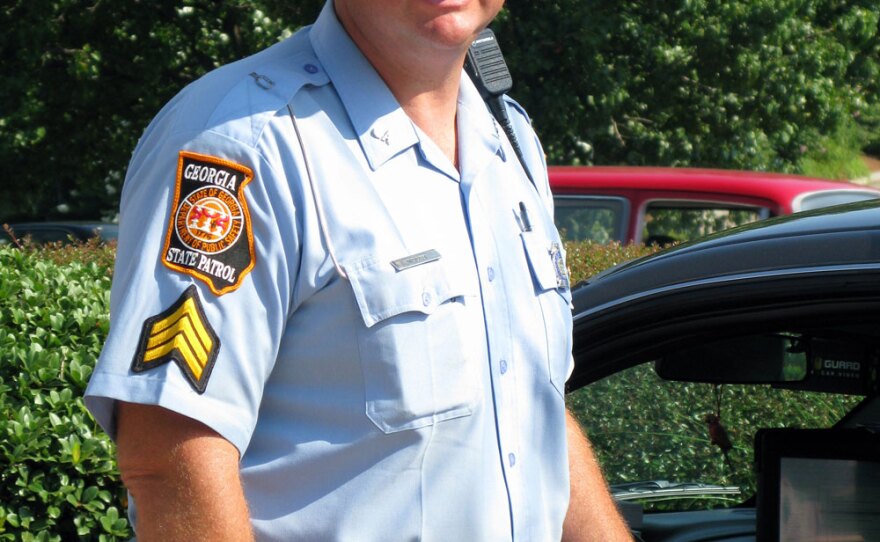Six new texting-while-driving bans go into effect this month as state officials try to reduce the number of car crashes. The U.S. Department of Transportation reports that in 2008, nearly 6,000 people died in accidents related to distracted driving and 500,000 others were injured.
One of those states with a new ban is Georgia, where enforcement remains the biggest issue. How are officers going to tell whether someone is texting?
Sgt. Robert Moody of the Georgia State Patrol says it's easier than you might think to figure out whether someone is typing a message behind the wheel. Texters often weave in and out of lanes, and drive more slowly.
"If you're looking down, and you're not paying attention to the road, you may let off the gas and instead of running 55 or 60, you're running 35 or 40," Moody says. "Those are the kind of things law enforcement can look for. Once we see those violations, why did that violation occur?"
If there's an accident, drivers' cell phone records could be subpoenaed. As of Thursday, Georgia banned all phone use for drivers under 18 and is one of 28 states that prohibit text messaging for all drivers.
"I think a lot of it comes down to common sense," says Bob Dallas, director of the Governor's Office of Highway Safety in Georgia. Dallas says officers will have a lot of discretion in writing tickets. The penalty here is a $150 fine and 1 point assessed against your driver's license. Dallas says lawmakers had a good reason for the stiff fine.
"They did look at some of the other states that have low fines or no points and what they found was there wasn't significant compliance associated with that. And that's one of the issues," says Dallas. "We don't just want to put a law on the books and [have] nobody pay attention to it."
According to the National Conference of State Legislatures, fines across the country range from as little as $20 to as much as $750 for a violation.
Getting people to comply with Georgia's new distracted-driving law is the focus of a new radio campaign hitting just before the holiday weekend.
"Police are teaming up to crack down on Georgia's deadliest drivers," the ad says. "Cops are on the lookout for drunk drivers and putting the brakes on texting behind the wheel, too."
Georgia and other states are looking to places where bans are already in effect to see how enforcement is working.
"It takes ongoing outreach and education. It takes that messaging over and over again. And unfortunately for some people, it takes something terrible to happen before they are true believers," says Pam Fischer of the New Jersey Division of Highway Traffic Safety.
She says officers already write 10,000 tickets every month for violators of New Jersey's texting and cell phone bans. A big problem, she says "is that we have far more folks breaking the law than we have police officers available to write tickets. So we have a huge challenge here."
In the meantime, there are few data about how well the laws work to reduce crashes. A study released this year by the Insurance Institute for Highway Safety showed that cell phone and texting bans in several states, including New York and California, had no impact on accidents. Many, including U.S. Transportation Secretary Ray LaHood, downplayed the results, saying enforcement will make a difference.
Moody with the Georgia State Patrol says enforcement should not be a problem.
"I do not look at this as an enforcement challenge. I think it will be a learning curve for all involved," he says.
Officers in Georgia say they'll give drivers several weeks to get used to the ban on texting and wait until August to strictly enforce it.
Copyright 2022 NPR. To see more, visit https://www.npr.org. 9(MDAzMjM2NDYzMDEyMzc1Njk5NjAxNzY3OQ001))







